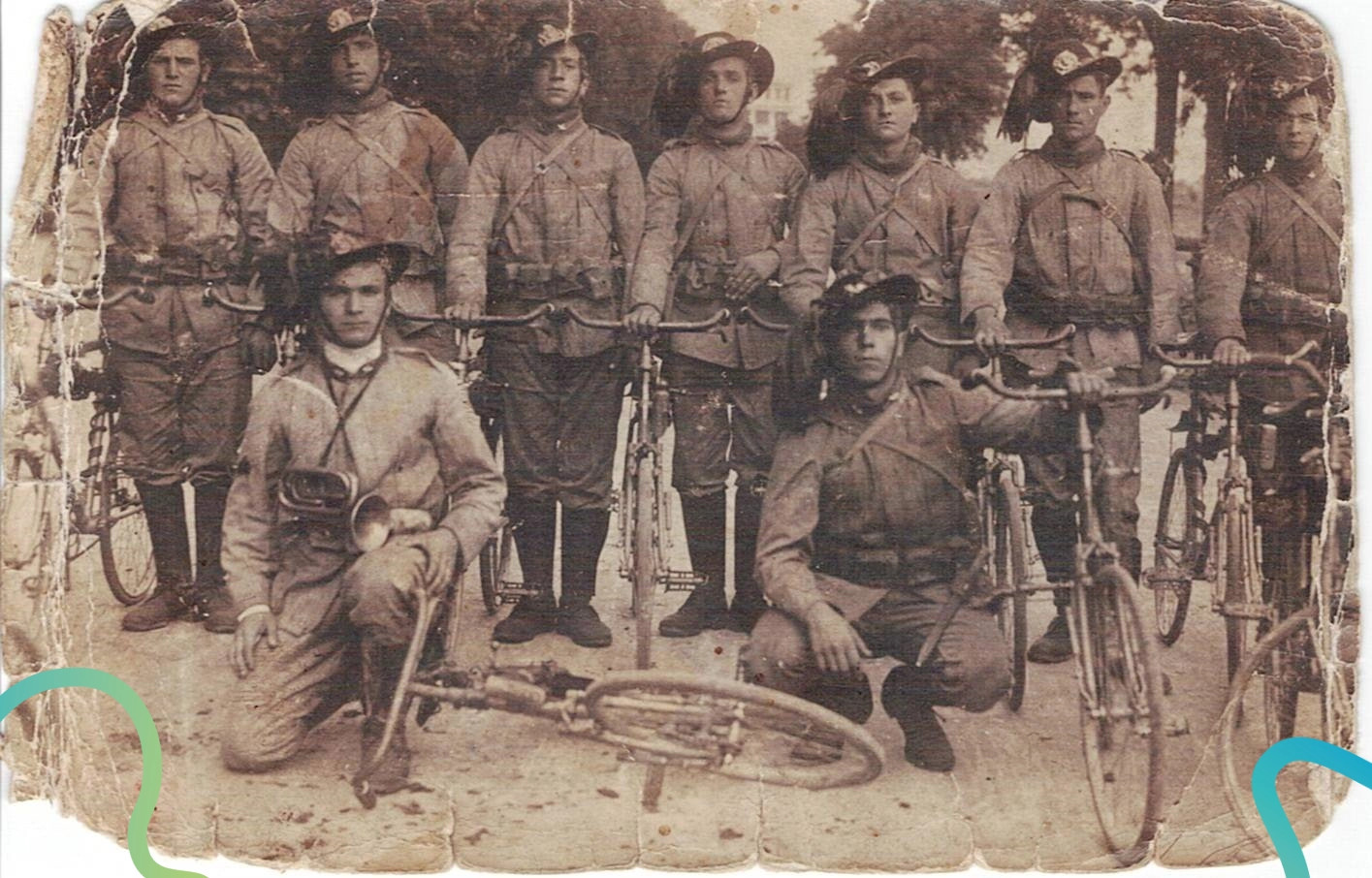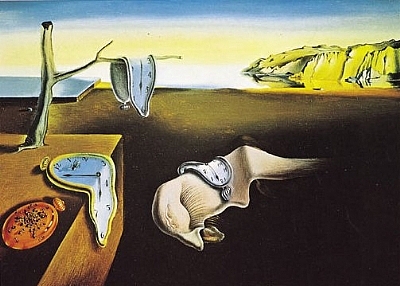The resistance of your memories, shared today, generates our tomorrow.
There's a moment, often unexpected, when a memory resurfaces. Has it ever happened to you? It only takes a moment. A smell. A taste. A light. A touch. A sound. Sensations that, returning from afar, open the door of time, stirring your emotions.
In that precise moment, you find yourself right there, so many years ago, as if everything were still present. Your memory ceases to be a thing of the past. It's there, it's true, it's present, it exists now, it's alive and well, it's within you, and the wonder is that it's also within those willing to listen to it, to see it.
To understand how and when this is possible, let's begin to understand the meaning and significance of the terms we're using. The fact is that, in sharing today, your memories, time, and space vanish, and you can become young again, perhaps even to create more than just your tomorrow. Indeed. Sharing your past experiences isn't just a way to tell your story, it's a natural, beneficial practice, capable of suspending time and space. It's as if the thread of your memory, today, has the power to stitch together what has happened and what is yet to come. Interesting, isn't it? This is exactly what we do in the Senior Digital Memory Workshop (LaMeDiS) of the History Is Us! project.
Now. Consider that, as early as 1931, when Salvador Dalí painted The Persistence of Memory, this theme was publicly accepted. You've seen the painting a thousand times, too.
What is important to understand, however, is that in his autobiographical confession, The Secret Life, Dalí states that time is not a flowing line but an elastic, deformable material that bends to emotions and desires.
Time is an illusion of the eye. Memory dissolves it and recreates it. It makes it last or disappear.
From this perspective, memory does not mean looking back distractedly but rather gazing, surveying, and reevaluating, revisiting everything that has been and that has brought us here, now, transforming it, thanks to a contemporary gaze, full of experience. Pay attention now. Every time you recount a memory, you create a new one! This does not replace the old, but renews and enlivens it, making it present.
Dalí does not speak of time as it appears to us in a clock, but as an intimate, interior, and authentic landscape. His famous soft forms, such as the melting clocks, are images of this intuition. Time is distorted because consciousness doesn't perceive it linearly. When you share a memory, something similar happens. The past detaches itself from its original place and moves into the present. It takes on a new shape through words and carries us into the future. Storytelling is therefore a way of shaping time.
This is why when you share your story, you can't be neutral. This ancestral practice allows you to explore your past from multiple perspectives and thus rediscover forgotten details, giving new meaning to everything you hadn't perceived before. Dalí writes about it with an ironic and provocative tone.
I've never believed that time passes. It simply does. The shadows on the same painting change.
So, every time you remember, you're painting the same picture again, but with different shadows, in a new light. It's an invaluable opportunity.
This is because memory, thus revalued, is a truly creative act. Recounting an episode from your past, on this basis, is therefore an artistic act. Every word you choose, every silence, every emotional nuance, becomes a creative gesture. It's no coincidence that Dalí also wanted to write about himself because his life itself is a total, integral, and uncompromising work of art. His creative technique is imbued with exaggeration, lucidity, invention, and truth. He recounts his life not as it was objectively, but rather shares his experiences as he perceives them at the very moment he rewrites them, even for us who are rereading it now, here, in this article, with tiny quotes from him, on a digital medium. In this sense, recounting your memories doesn't mean telling exactly what happened, but what remains alive in you!
Memory is therefore a bridge between experience and imagination, between memory and desire, between moments and hopes. This is intergenerationality in all its transparency. Dalí, for example, when describing his childhood experiences, states that remembering helps him understand his evolving identity. Thus, every episode of the past, even the most insignificant at first, becomes a crucial function in reconstructing the mosaic of the Self.
Memory is the only tool that allows me to see myself being born every day.
You too, when you recount a memory of yours, ultimately, if you pay attention, you do just that. You recreate yourself. Therefore, perhaps even emotionally, you rejoice. You feel lighter, and those listening and observing are also relieved, becoming part of a surprising rebirth. All the participating protagonists experience a restorative recreation of the soul.
In sharing your memories, you transform the memory of the experienced event into a new and unexpected relationship. The moment your memory materializes, reaching others, your personal time becomes shared time. Two narratives intertwine. Inevitably. Two times meet and something new is born.
This isn't a nostalgic issue, as some might initially believe, but something profoundly vital. When you tell a story, you shape, mold a fragment of yourself, and hand it over to someone else. This generous gesture has a value multiplied by three, capable of unburdening us. Yes. True. At the same time, however, it roots us. Dalí, with his paradoxical lucidity, explains this passage very well.
Everything I don't share evaporates.
Reading it today, this statement of his is incredible. He was ahead of the curve, but by a long way. Come on. Social media didn't exist yet. But he had already planted its seed. A memory, if not told, fades. When you share it, it becomes present and no longer belongs only to you, who guarded it, but also to those who are capable of receiving it, as a gift. In this exchange, the ultimate meaning is generated, even of our very existence, and therefore a new opportunity that, now, also thanks to digitalization, can bebe captured exponentially.
There is, in fact, something magical about the moment a memory of yours is told. You enjoy it. Those present benefit. The flow of external and extraneous events stops. The planet presents itself as it appears to us. A suspension is created. A temporal bubble. A complete silence. We breathe. Again. Finally. Dalí says that these moments are the only decisive ones for our discernment.
Time collapses upon itself like a watch melting in the sun.
The past frees itself from its own carefully measured distance and becomes immediate, vivid, present. When you tell a story, time stops flowing and we are all attentive, therefore truly alive. This suspension is what makes sharing memories a profoundly human act. It leads directly to sacredness. Respect is required. Seriousness is a must. If you think your story is simple. If you think it is not extraordinary, you have nothing to complain about. On the contrary. What is important is that the story reflects your life, your experiences, and your sensitivity. Ultimately, what matters is that you are there. Indeed. Every shared memory, however obvious it may seem, becomes a priceless testimony to the fact that time is never lost, but only transformed.
It is an exercise in complete freedom. That is, one of the pillars on which our Europe is founded. Remembering together is a concrete practice of our tradition. The meaning is that the fundamental element of our continent is in your hands. It means you can go beyond the burden of conventional time.
Linearity, toward a schematic future, makes you forget what you have experienced. Everything would be lost. Dalí, with his dreamlike aesthetic and plastic deformation, stops this senseless drift and teaches us that time is not a constraint but a material you can shape. You and your creative naturalness take center stage again.
When you allow yourself the luxury of sharing your stories, of reopening your old drawers, of reliving emotions, you are not going backwards. You are opening new interior spaces. Memory, shared today, becomes a treasure that allows you to live better in your own tomorrow.
I have never tried to remember. My memories haunt me, and I welcome them as guests.
Welcoming one's memories and sharing them, for Dalí, means accepting that time does not entirely belong to us. It is a flow that passes through us and connects us, including others, on multiple levels, restoring our awareness of being alive, now.
In conclusion. When thinking about your memories, don't fixate rationally on calculating whether they are a story big or small, of happiness or melancholy, but, among them, choose only one that truly belongs to you, and that you feel ready to share. Then. Find a friend, a child, a colleague, someone you feel close to, and tell them your story. Let the words flow simply, perhaps imperfect, but true. See how your listeners react. Maybe they'll smile. Maybe they'll recognize themselves in what you say. One thing is certain. In that moment, time stops.
Nothing shared can die.
Dalí tells us that sharing is a recreated reality. If you can't find anyone to do this exercise with, take it easy. Grab a sheet of paper. A pen. Look out the window and then write. Even just take notes. Maybe even send yourself a few voice messages. Record yourself a video. Join LaMeDiS to do it better. We're here. Sharing a memory is, in fact, the most human way to challenge time. Transform that memory into presence, connection, and beauty. By sharing your story today, you might discover that time, after all, never really existed because the endurance of your memories, shared today, generates our tomorrow. Now. You. Are you ready for this challenge? Yes? Good. Write to us now HERE. What are you waiting for? Tomorrow is already here.


